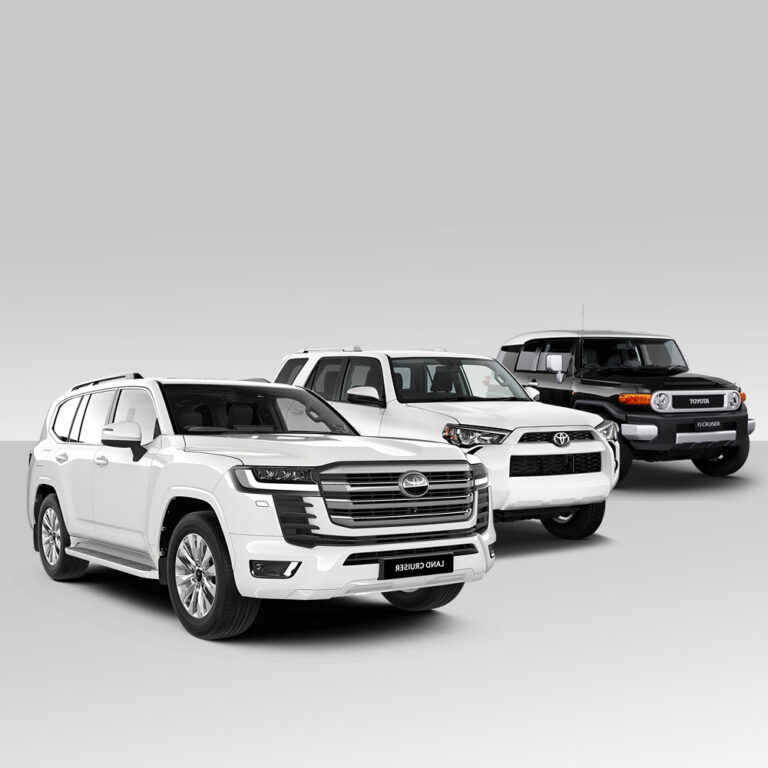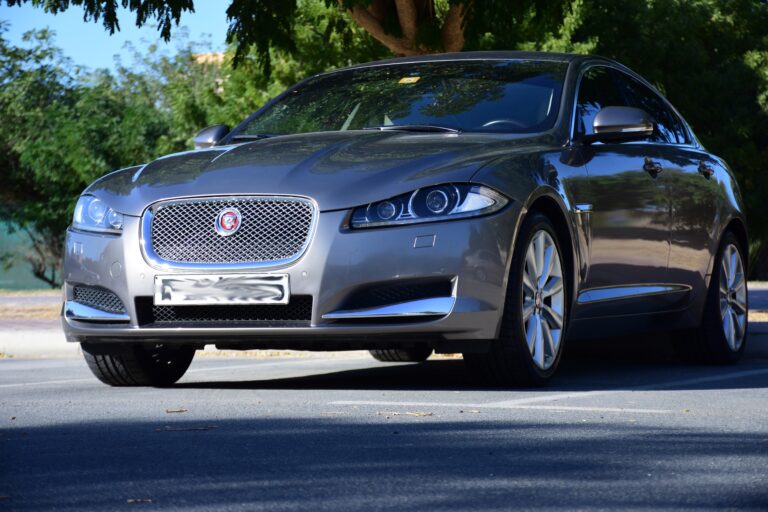Car Brands Under Volkswagen: A Comprehensive Guide
Car Brands Under Volkswagen: A Comprehensive Guide cars.truckstrend.com
The automotive world is a vast and intricate landscape, dominated by a handful of colossal groups that control an astonishing array of beloved brands. Among these titans, the Volkswagen Group stands as a true automotive colossus, a multifaceted empire that extends far beyond its iconic "People’s Car." From accessible family sedans to ultra-luxury grand tourers, and from high-performance sports cars to heavy-duty trucks, the Volkswagen Group’s portfolio is a testament to strategic acquisition, engineering prowess, and a keen understanding of diverse market segments.
Understanding the breadth and depth of brands under the Volkswagen umbrella is crucial for anyone interested in the automotive industry, whether you’re a potential buyer, an enthusiast, or simply curious about how such a diverse collection of companies operates under one roof. This article will delve into the fascinating world of Car Brands Under Volkswagen, exploring each division, the strategic advantages of this multi-brand approach, and what it means for the future of mobility.
Car Brands Under Volkswagen: A Comprehensive Guide
A Legacy of Strategic Acquisitions: How Volkswagen Group Grew
The Volkswagen Group’s journey began after World War II with the production of the Beetle, a car designed for the masses. Over the decades, through shrewd acquisitions and organic growth, Volkswagen transformed itself from a single-brand entity into a global powerhouse. This expansion wasn’t merely about increasing market share; it was a deliberate strategy to cover various market segments, leverage shared technologies, and achieve significant economies of scale. Each brand brought its unique heritage, engineering expertise, and customer base, contributing to the group’s overall strength and resilience.
The Core Pillars: Volkswagen Passenger Cars, Audi, Škoda, and SEAT/CUPRA
These brands represent the volume sales and broader market appeal for the Volkswagen Group, each meticulously positioned to cater to distinct consumer needs and preferences.
Volkswagen Passenger Cars: The People’s Car, Evolved
At the heart of the group is Volkswagen Passenger Cars, the eponymous brand that continues to embody reliability, innovation, and broad appeal. From the iconic Golf and the versatile Tiguan SUV to the sophisticated Passat and the pioneering ID. electric vehicle series, Volkswagen offers a wide range of vehicles that prioritize practicality, safety, and modern technology. It’s the brand that aims to deliver quality and refinement accessible to a wide audience, serving as the group’s foundational pillar.
Audi: Vorsprung durch Technik
Audi is Volkswagen Group’s premium arm, renowned for its sophisticated design, advanced technology, and quattro all-wheel-drive system. Positioned squarely against luxury rivals like Mercedes-Benz and BMW, Audi offers a compelling blend of performance, elegance, and cutting-edge features. Its lineup spans compact hatchbacks (A3), executive sedans (A4, A6, A8), versatile SUVs (Q3, Q5, Q7, Q8), and a growing family of electric vehicles under the e-tron designation. Audi’s focus on "Vorsprung durch Technik" (Advancement through Technology) drives innovation across the group.

Škoda: Simply Clever, Smart Value
Originating from the Czech Republic, Škoda has undergone a remarkable transformation under Volkswagen Group ownership. Once perceived as a budget brand, Škoda is now celebrated for its exceptional value, robust build quality, and ingenious "Simply Clever" features. Škoda vehicles offer spacious interiors, practical solutions, and reliable performance, often sharing platforms and powertrains with Volkswagen models but at a more competitive price point. Popular models include the Octavia, Superb, Kodiaq, and the electric Enyaq, appealing to pragmatic buyers seeking quality without extravagance.
SEAT and CUPRA: Passion, Design, and Performance
The Spanish brand SEAT injects passion, youthful design, and a sporty driving experience into the Volkswagen Group lineup. With a focus on dynamic styling and engaging performance, SEAT appeals to a younger, more design-conscious demographic. Models like the Leon and Ateca offer a vibrant alternative to their Volkswagen counterparts.
More recently, CUPRA has emerged as a standalone performance brand, evolving from SEAT’s high-performance division. CUPRA takes SEAT’s sporty DNA to the next level, offering distinct models like the Formentor and Born (an electric hot hatch), with a sharper focus on performance, exclusive design, and a premium, enthusiast-oriented appeal.

The Pinnacle of Performance and Luxury: Porsche, Bentley, Lamborghini, and Bugatti
These brands represent the zenith of automotive engineering, design, and exclusivity, catering to the most discerning and affluent customers.
Porsche: The Sporting Soul
Porsche is synonymous with high-performance sports cars and luxury SUVs. Known for its iconic 911, Porsche also produces the successful Cayenne and Macan SUVs, the elegant Panamera sedan, and the groundbreaking Taycan electric sports car. Porsche maintains a fierce independence in its design and engineering philosophy while benefiting from the group’s resources. It’s a brand that perfectly balances heritage with innovation, delivering exhilarating driving experiences.
Bentley: Unrivalled Luxury and Craftsmanship

The epitome of British luxury, Bentley offers meticulously handcrafted vehicles that blend opulent interiors with powerful performance. Under Volkswagen Group ownership, Bentley has expanded its lineup beyond traditional grand tourers like the Continental GT and Flying Spur to include the highly successful Bentayga SUV. Bentley represents ultimate refinement, bespoke customization, and a timeless appeal for those who demand nothing but the best.
Lamborghini: Untamed Power and Exotic Design
From Italy, Lamborghini is the embodiment of exotic supercars, known for their audacious designs, naturally aspirated engines, and raw, visceral performance. Models like the Huracán and Aventador are automotive art pieces, while the Urus SUV has successfully expanded the brand’s reach. Lamborghini’s vehicles are about pushing boundaries and making an undeniable statement.
Bugatti: Hypercar Royalty
Bugatti stands at the absolute pinnacle of automotive engineering, producing hypercars that redefine speed, luxury, and exclusivity. With models like the Veyron and Chiron, Bugatti creates bespoke masterpieces for the ultra-wealthy.
- Important Note on Ownership: While historically a fully owned subsidiary, Bugatti’s ownership structure changed in 2021. It is now part of Bugatti Rimac, a joint venture where Porsche (part of the Volkswagen Group) holds a significant 45% stake, and Rimac Group holds 55%. This strategic move combines Bugatti’s heritage with Rimac’s cutting-edge electric hypercar technology. So, while not directly 100% owned by the VW Group anymore, there is still a strong, influential connection through Porsche.
Beyond the Pavement: Commercial Vehicles and Mobility Solutions
The Volkswagen Group’s influence extends far beyond passenger cars, encompassing essential commercial transport and future mobility services.
Volkswagen Commercial Vehicles (VWN)
Volkswagen Commercial Vehicles (VWN) produces vans, pick-up trucks, and people carriers essential for businesses and families. Models like the Transporter, Caddy, Amarok, and Crafter are workhorses known for their reliability and versatility. This division is crucial for meeting the demands of logistics, trade, and public services.
MAN and Scania: Heavy-Duty Excellence
The group also owns two of Europe’s leading manufacturers of heavy trucks, buses, and diesel engines: MAN and Scania. These brands provide robust, efficient, and technologically advanced solutions for long-haul transport, construction, and public transportation, playing a vital role in global supply chains.
CARIAD and MOIA: Driving the Future of Mobility
Looking to the future, the Volkswagen Group has invested heavily in new technologies and services. CARIAD is an internal software company developing a unified software platform for all VW Group brands, crucial for advancing connectivity, autonomous driving, and digital services. MOIA is a ride-pooling service that aims to provide sustainable and efficient urban mobility solutions, showcasing the group’s commitment to new business models in transportation.
The Strategic Genius: Benefits of Volkswagen’s Multi-Brand Approach
The Volkswagen Group’s multi-brand strategy offers profound benefits that contribute to its market dominance:
- Platform Sharing and Economies of Scale: A core advantage is the ability to share vehicle platforms (like MQB for internal combustion cars and MEB/PPE for electric vehicles), components, and powertrains across multiple brands. This significantly reduces research and development costs, accelerates production, and allows for massive economies of scale in procurement.
- Market Segmentation: Each brand is carefully positioned to target a specific demographic and price point, from entry-level value to ultra-luxury. This broad appeal allows the group to capture a larger share of the global automotive market and withstand fluctuations in specific segments.
- Technological Synergy: Innovations developed by one brand (e.g., Audi’s quattro, Porsche’s electric drive systems) can be adapted and integrated into other brands, leading to a faster pace of technological advancement across the entire portfolio.
- Risk Diversification: By operating in multiple segments and geographies, the group is less vulnerable to economic downturns or shifts in consumer preferences that might impact a single brand.
- Talent Attraction: The sheer diversity and global reach of the Volkswagen Group make it an attractive employer for top engineering, design, and business talent.
Navigating the Future: Challenges and Opportunities
Despite its formidable position, the Volkswagen Group faces significant challenges, primarily the rapid transition to electric vehicles, the development of autonomous driving technologies, and fierce competition from new entrants and established rivals. Supply chain disruptions, particularly in semiconductors, also pose ongoing hurdles. However, its multi-brand strategy, combined with massive investments in electrification, software development, and new mobility services, positions the group well to adapt and lead in the evolving automotive landscape. The future will see even more shared electric platforms and integrated software solutions across its diverse portfolio.
Practical Advice for Consumers: Choosing Your Volkswagen Group Vehicle
For consumers, the Volkswagen Group’s multi-brand strategy offers an unparalleled breadth of choice.
- Define Your Priorities: Before looking at specific models, consider what truly matters to you: budget, performance, luxury, practicality, fuel efficiency, or environmental impact.
- Leverage Shared Technology: Remember that many Volkswagen Group vehicles share underlying platforms and powertrains. This means you can often find similar levels of engineering quality and reliability across different brands, even if their pricing and styling differ. For instance, a Škoda Octavia shares much with a VW Golf, offering comparable driving dynamics at a different price point.
- Explore Beyond the Obvious: Don’t limit yourself to just one brand. If you’re considering a VW Tiguan, also look at the Škoda Kodiaq or the SEAT Ateca – you might find a better fit for your budget or aesthetic preference without sacrificing core quality.
- Consider Future Trends: With the strong push towards electrification, exploring the ID. series from Volkswagen, e-tron from Audi, Enyaq from Škoda, or Taycan from Porsche can provide a glimpse into the future of mobility with proven group technology.
Conclusion: A Global Powerhouse Redefining Mobility
The Volkswagen Group is far more than just a collection of car brands; it is a strategic alliance of automotive excellence, innovation, and diverse market presence. From the accessible Volkswagen to the aspirational Audi, the practical Škoda, the sporty SEAT/CUPRA, and the elite Porsche, Bentley, and Lamborghini, the group covers every conceivable automotive niche. Its strategic approach to platform sharing, technological synergy, and market segmentation has cemented its position as a global leader. As the automotive industry navigates a transformative era defined by electrification, connectivity, and autonomous driving, the Volkswagen Group’s adaptable, multi-brand structure provides a robust framework for continued leadership and innovation, truly redefining what it means to be a global mobility provider.
Overview of Volkswagen Group Brands and General Price Categories
| Brand | Primary Focus | Key Characteristics | General Price Range Category |
|---|---|---|---|
| Volkswagen | Mainstream Passenger Cars | Reliable, practical, technologically advanced, broad appeal, strong electrification push (ID. series). | Mid-Range to Premium |
| Audi | Premium Luxury | Sophisticated design, advanced technology (Quattro, MMI), high-quality interiors, performance. | Premium to Luxury |
| Škoda | Value & Practicality | "Simply Clever" features, spacious, reliable, excellent value for money, growing design appeal. | Entry to Mid-Range |
| SEAT | Sporty & Design-Oriented | Dynamic styling, engaging driving experience, youthful appeal. | Entry to Mid-Range |
| CUPRA | Performance & Exclusive | Sharper performance, distinctive design, premium sporty feel, standalone brand from SEAT. | Upper Mid-Range to Premium |
| Porsche | Sports Cars & Performance SUV | Iconic design, exceptional driving dynamics, luxury performance, strong heritage, innovation in EVs. | Luxury to High-End Luxury |
| Bentley | Ultra-Luxury | Handcrafted bespoke interiors, powerful engines, unparalleled comfort and opulence, British heritage. | Ultra-Luxury |
| Lamborghini | Exotic Supercars & SUV | Extreme design, raw power, high-performance, exclusive, visceral driving experience. | Supercar |
| Bugatti | Hypercars | Ultimate speed, extreme exclusivity, unparalleled engineering and craftsmanship. (Note: Part of Bugatti Rimac JV). | Hypercar (Top Tier) |
| Ducati | Motorcycles | High-performance motorcycles, Italian design, racing heritage. (Under Audi Group). | Premium Motorcycle |
| VW Commercial Vehicles | Vans & Pickups | Reliable workhorses, versatile, tailored for business and commercial use. | Commercial Vehicle |
| MAN | Heavy Trucks & Buses | Robust, efficient, heavy-duty transport solutions, industrial engines. | Commercial Heavy-Duty |
| Scania | Heavy Trucks & Buses | Premium heavy-duty vehicles, focus on fuel efficiency, modular systems, industrial engines. | Commercial Heavy-Duty |
| CARIAD | Software Development | Develops unified software platform for all VW Group brands (internal focus, not direct consumer product). | N/A (Internal Tech) |
| MOIA | Mobility Services | Provides ride-pooling services and future mobility solutions (service, not direct vehicle sale). | N/A (Service) |
Disclaimer: The "General Price Range Category" is a broad indication and does not reflect specific model pricing, which varies significantly by region, trim level, options, and market conditions. This table serves as a general guide to brand positioning within the automotive market.
Frequently Asked Questions (FAQ)
Q1: How many car brands does Volkswagen Group own?
A1: The Volkswagen Group’s portfolio is dynamic, but it generally includes 10 automotive brands for passenger cars and motorcycles (Volkswagen Passenger Cars, Audi, Škoda, SEAT, CUPRA, Porsche, Bentley, Lamborghini, Ducati, and formerly Bugatti as a direct subsidiary, now a significant stake via Porsche in Bugatti Rimac). It also includes commercial vehicle brands like Volkswagen Commercial Vehicles, MAN, and Scania, plus mobility and software companies like CARIAD and MOIA.
Q2: What is the most luxurious brand under Volkswagen Group?
A2: Bentley is widely considered the pinnacle of luxury within the Volkswagen Group, offering bespoke craftsmanship, opulent interiors, and a focus on ultimate comfort and refinement. Bugatti, while now part of Bugatti Rimac (with VW Group’s Porsche holding a significant stake), represents the absolute extreme of exclusivity and hypercar luxury.
Q3: Does Volkswagen own Lamborghini and Porsche?
A3: Yes, Volkswagen Group fully owns both Lamborghini (through its Audi subsidiary) and Porsche. Porsche SE, a holding company controlled by the Porsche and Piëch families, is the largest shareholder of Volkswagen AG.
Q4: What are the benefits of Volkswagen’s multi-brand strategy?
A4: The multi-brand strategy offers several benefits, including economies of scale through shared platforms and components, diverse market segmentation to appeal to a wide range of customers, risk diversification across different market segments, and technological synergy where innovations from one brand can benefit others.
Q5: Is Bugatti still part of Volkswagen?
A5: Bugatti’s ownership structure changed in 2021. It is now part of Bugatti Rimac, a joint venture. Porsche (which is part of the Volkswagen Group) holds a significant 45% stake in Bugatti Rimac, while Rimac Group holds 55%. So, while not a direct, fully-owned subsidiary of Volkswagen AG anymore, there’s still a strong and influential connection through Porsche.






